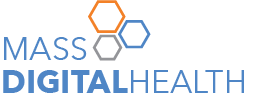
The University of Massachusetts Lowell is a nationally ranked public research university committed to excellence in teaching, research and community engagement. University of Massachusetts Lowell is focused on turning ideas into solutions with research that matters. Our faculty and students stand ready to translate your digital health discoveries into powerful solutions. The campus boasts cutting-edge research facilities and is always adding capabilities; the new Fabric Discovery Center is one such example, adding to our growth and to our capacity to conduct groundbreaking research, attracting leaders from around the world. University of Massachusetts Lowell works across disciplines; we have faculty partnering with industries, startups and communities to innovate and build solutions that make a difference in people’s lives.
UMass Lowell and M2D2 (a joint initiative UMass Lowell/UMass Medical School) are uniquely suited to offer six primary validation environments to inventors and entrepreneurs:
1) The Center for Digital Health at UMass Lowell provides expertise. The project brings together well-established computer scientists, biostatisticians, epidemiologists, clinical practitioners, biomedical researchers, and information security specialists, with a strong record of federal and industry funding and publications.
2) The UMCCTS Data Science Core treats data as a strategic asset and provides assistance in data and analytic approaches to accelerate research, develop effective learning healthcare models, enable cost-effective care, and train the next generation workforce. In working with our hospital partners, we have established the UMCCTS Data Lake which is a large repository of data from heterogeneous clinical systems. Clinical data collected as part of routine care is integrated into the Data Lake and is used for research, assessment of clinical trial feasibility and to assist in clinical trial recruitment with appropriate IRB permissions. Extensive QA/QC procedures are being implemented to ensure data consistency security and accuracy. As of 2018, we have data on 3 million patients over 78 million encounters.
Services include:
- Compliant Access to Data (data consultation & guidance, data integration, data & reports delivery, visualization & analytics)
- Data Innovation Research (phenotyping & prospective disease registries, computing and informatics methods for precision medicine, innovative systems for data collection, integration, and decision support)
- Data Collaborations
3) Massachusetts Medical Device Development Center (M2D2): M2D2 is a Johnson & Johnson JLABS affiliate and provides incubator space and a network of services that leverage the engineering, business and clinical strengths of UML and UMMS to accelerate the development and launch of new medical device companies to include digital health innovations. M2D2 provides early introductions to Johnson & Johnson and other industry partners so relationships can be fostered and can lead to investment or merger and acquisition.
4) The Inter-professional Center for Experiential Learning and Simulation (iCELS) at UMMS provides exemplary simulation development, programming, and research for innovators. It can simulate a wide range of scenarios, including clinic rooms, inpatient facilities, disaster sites, and other health care settings.
5) D3Health was established in 2017 to revolutionize health care through mobile health and digital technologies, and stimulate the economic growth, workforce training and public health in Central Massachusetts. The D3Health/3D printing facility utilizes 3D printing, laser cutting, and open source resources to develop products and tools for digital health innovators.
6) The state-of-the art simulation center at the UMass Lowell Solomont School of Nursing. It provides collaborations with experts, simulation development, programming, and research resources for innovators.
A network of UMass research cores are available to investigators: 50 at UMMS; 90 overall in the UMass system (https://www.uml.edu/Research/CRF/default.aspx).
MA State Voucher Program:
Massachusetts companies working with UMass Lowell’s Core Facilities may be eligible for the Massachusetts State Voucher Program. Eligible companies may apply for both the State Voucher Program and MeHI’s Sandbox Grant Program. The State Voucher Program offers up to 75% subsidy to use UMass Lowell Core Facilities. With these state incentives, companies headquartered in MA and having less than 50 FTEs can develop prototypes and test new devices at reduced rates. Similarly, established companies, especially manufacturers, can create prototypes to bid on contracts without having to initially make large investments, all while retaining their IP.
Eligibility:
- Start-ups and companies with 10 or fewer employees receive a 75% subsidy.
- Start-ups and companies with 11-50 employees receive a 50% subsidy.
- Maximum of 75K subsidy per start-up/company.
The voucher application process requires minimal paperwork, is reviewed rapidly and can be accessed at https://www.uml.edu/Research/CRF/state-voucher-program.aspx.
